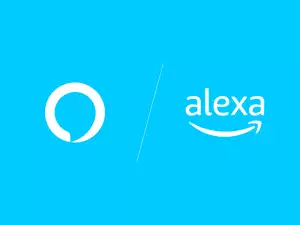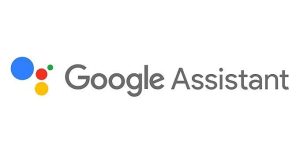Let’s talk about AI. Alexa by amazon, Google assistant by Google and Bixby by Samsung electronics are three of the most powerful AI assistants on the planet. The best part about these AI is that they are ever growing and ever-adapting. So Alexa’s response 3 years ago would probably not be as advanced as Alexa’s response today. In this article, we would be discussing and comparing the three most powerful AI assistants in the world. Let’s see which AI assistant comes out on top.
What is an AI Assistant?

An AI assistant is also known as a Virtual assistant or Digital assistant. It is an application program or software that understands natural language voice commands or text input and carries out assigned tasks or answers questions asked by the user.
Artificial Intelligence (AI) Assistants have become an integral part of our daily lives, helping us accomplish tasks ranging from setting alarms and reminders to making complex web searches and controlling our smart homes. These remarkable digital assistants – Amazon’s Alexa, Google Assistant, Apple’s Siri, and Samsung’s Bixby – have evolved significantly since their initial launch, demonstrating the remarkable strides in voice recognition, natural language processing, and machine learning. However, as similar as they might seem, each of these AI assistants carries its own unique strengths, weaknesses, and special features.
Tracing the Evolution: A Brief History of AI Assistants
AI assistants owe their existence to significant advancements in multiple fields, such as machine learning, natural language processing, and cloud computing. The development and history of AI assistants can be traced back to several landmark events:
Also Read- Developing Secure Web Applications: Understanding Cybersecurity in Programming
1. 1961 – IBM Shoebox:
The genesis of voice recognition in computing can be attributed to the IBM Shoebox, showcased at the 1962 World’s Fair. This machine could understand 16 spoken words and the digits 0 to 9.
2. 1987 – Dragon Dictate:
The concept of speech recognition went mainstream with the Dragon Dictate, the first consumer-focused speech recognition product. However, its high cost (about $9,000) made it inaccessible to many.
3. 1990 – BellSouth/IBM Simon Personal Communicator:
Often considered the first smartphone, this device came with predictive text features, a key component of modern AI.
4. 2001 – Speech Recognition in Windows XP:
Microsoft introduced built-in speech recognition in Windows XP, making it more accessible to everyday users.
5. 2010 – Siri:
The first modern AI assistant as we know them today was Siri, introduced by Apple in 2010. Siri could conduct web searches, send messages, and make phone calls based on voice commands. This was a pivotal moment in the history of AI assistants.
6. 2011 – IBM Watson:
IBM’s Watson shot to fame when it won the game show Jeopardy! Watson demonstrated the potential of AI in processing vast amounts of information quickly and accurately.
7. 2012 – Google Now:
Google entered the AI assistant market with Google Now. It provided predictive information to users based on their habits and preferences.
8. 2014 – Amazon Alexa and Microsoft Cortana:
Amazon’s Alexa was introduced as part of the Amazon Echo smart speaker, while Microsoft brought out Cortana, built into Windows 10.
9. 2016 – Google Assistant and Samsung Bixby:
Google Assistant offered enhanced capabilities compared to Google Now, while Samsung introduced Bixby as an integral part of its Galaxy smartphone ecosystem.
10. Present:
Today, AI assistants have become an integral part of many people’s lives. They’re not only confined to smartphones or computers but are also available in smart home devices, cars, and wearable devices.
AI assistants have come a long way from simple voice command recognition, becoming more interactive, personalized, and intelligent. They continue to evolve and improve, marking an exciting trajectory for the future of AI.
Alexa vs Google Assistant vs Siri vs Bixby
Its time to take a deeper look into each of these AI assistants, comparing each of their functionalities, pros, cons and how they stack up against each other.
Introducing Alexa: Amazon’s Pioneering Voice Assistant

As we delve deeper into the comparison of the industry’s leading AI assistants, it’s fitting to begin with Alexa, Amazon’s foray into the world of artificial intelligence. Since its debut in 2014 within the Amazon Echo smart speaker, Alexa has transformed the way we interact with our devices and has set the benchmark for voice-controlled AI assistants. Packed with thousands of ‘skills’, Alexa’s capabilities extend far beyond simple tasks, leading the charge in home automation and offering a range of features that make everyday life more convenient. In this segment, we will scrutinize Google Assistant’s core features, strengths, potential weak spots, and how it holds up against Alexa, Siri, and Bixby.
Key Features and Milestones for Alexa
-
-
- Released in November 2014, initially through Amazon Echo.
- Pioneered the concept of “Skills”, which are like apps for Alexa, enhancing its capabilities.
- Has compatibility with a wide variety of smart home devices.
- Can make Amazon purchases directly using voice commands.
- Alexa can recognize different user voices and personalize responses through “Voice Profiles”.
- Released “Alexa Guard” in 2019, a feature that listens for sounds of breaking glass or alarms when you’re away from home.
- Alexa can play games and trivia with users.
- In 2020, Alexa became able to infer users’ goals to predict and suggest follow-up actions.
- Alexa offers a wide range of third-party integrations.
- Continuously updated to add new capabilities and improve natural language understanding.
-
Unveiling Google Assistant: Google’s Answer to AI Assistance

Next on our list is Google Assistant, a product of the tech behemoth’s innovative prowess. Launched in 2016, Google Assistant rapidly became a noteworthy competitor in the voice-controlled AI assistant market, integrating seamlessly with the vast ecosystem of Google’s services and Android devices. Renowned for its superior natural language processing and predictive capabilities, Google Assistant offers users a tailored and conversational interaction experience. In this segment, we will scrutinize Google Assistant’s core features, strengths, potential weak spots, and how it holds up against Alexa, Siri, and Bixby.
Key Features and Milestones for Google Assistance
-
-
- Launched in May 2016, beginning with Google’s messaging app Allo and Google Home.
- Notable for its superior natural language processing.
- Excels in its ability to answer questions accurately with the backing of Google’s extensive search database.
- Compatible with Android phones, tablets, TVs, smart displays, and a wide range of smart home devices.
- Released “Continued Conversation” feature in 2018, allowing for more natural interactions without needing to repeat “Hey, Google”.
- Can make Google Duo video calls.
- Google Assistant can recognize up to six voices, offering personalized responses.
- Integration with Google Maps allows for hands-free navigation.
- Ability to check into flights and book hotel rooms was added in 2019.
- Began featuring in Samsung TVs in 2020, despite Samsung having its own AI assistant (Bixby).
-
Delving into Siri: Apple’s Voice-Controlled Personal Assistant
![]()
Since its launch in 2011 as an integral feature of the iPhone 4S, Siri, Apple’s proprietary AI assistant, has become synonymous with the concept of voice assistants. Siri marked Apple’s significant step into the AI domain, providing users with an intuitive and personalized digital assistant designed to function seamlessly with other Apple services and devices. Siri’s proactive suggestions and ability to understand context-based commands distinguish it from competitors. This section will probe into Siri’s unique capabilities, its advantages, areas for enhancement, and how it competes with Alexa, Google Assistant, and Bixby.
Key Features and Milestones for Siri
-
-
- Introduced in October 2011 with the iPhone 4S, making it the first modern AI assistant to hit the market.
- Integrated across Apple devices, including iPhones, iPads, Macs, Apple Watch, and HomePod.
- Siri uses machine learning to better understand and predict user actions.
- Introduced “Siri Shortcuts” in 2018, allowing users to create custom voice commands.
- Siri can send messages and emails on command.
- Introduced the ability to translate languages in real-time in 2017.
- Launched “SiriKit” in 2016, allowing third-party apps to work with Siri.
- Siri uses “HomeKit” to control smart home devices.
- Siri can make restaurant reservations and play music through Apple Music.
- Siri has seen continued updates to improve understanding and accuracy.
-
Exploring Bixby: Samsung’s Unique Voice Assistant

Finally, we delve into Bixby, Samsung’s entrant into the AI assistant landscape. Bixby, which made its debut in 2017 with the Samsung Galaxy S8, offers a slightly different approach to AI assistance. Tailored to provide deeper integration with Samsung’s hardware, Bixby stands out for its focus on device control, setting it apart from the primarily information-centric AI assistants. Bixby’s ability to understand complex commands has made it an integral part of the Samsung user experience. In this concluding segment, we will examine Bixby’s defining features, strengths, limitations, and how it fares against Alexa, Google Assistant, and Siri.
Key Features and Milestones for Bixby
-
-
- Bixby was launched with the Samsung Galaxy S8 in March 2017.
- Designed for deeper integration with Samsung’s hardware, making it ideal for device control.
- Bixby is capable of complex command chains referred to as “Quick Commands”.
- Bixby Vision, introduced in 2017, uses the device’s camera for image recognition.
- Bixby Routines, launched in 2019, allows users to automate tasks based on location, time, or event triggers.
- Compatible with Samsung’s range of smart home devices.
- Bixby can recognize multiple user voices for personalized responses.
- Ability to make restaurant reservations and taxi bookings was added in 2018.
- Bixby supports third-party app integrations.
- Bixby Capsules, similar to Alexa Skills, were launched in 2019 to expand its features.
-
Comparison
Alexa | Google Assistant | Siri | Bixby | |
Year of Introduction | 2014 | 2016 | 2011 | 2017 |
Initial Device | Amazon Echo | Google Home/Allo | iPhone 4S | Samsung Galaxy S8 |
Key Feature | Skills | Natural Language Processing | Integration with Apple devices | Device control |
Smart Home Integration | Extensive | Extensive | Limited to HomeKit devices | Limited to Samsung SmartThings |
Personalization | Voice Profiles | Voice Match | Personalized based on Apple ID | Multi-user interaction |
Hands Free Activation | Yes | Yes | Yes | Yes |
Virtual Assistance | With Echo Show devices | With Smart Display devices | With iPhone, iPad, and Mac | With Samsung smartphones |
Third Party Integration | Extensive | Extensive | Limited | Limited |
Unique Feature | Alexa Guard | Continued Conversation | Siri Shortcuts | Bixby Quick Commands |
Multilingual Support | Yes | Yes | Yes | Yes |
It is crucial to note that these features are ever evolving and ever improving. AI is revolutionizing the world and its safe to say the best features from AI assistants are yet to come.
Conclusion
Determining a “winner” among these AI assistants isn’t straightforward, as the best choice largely depends on individual needs, preferences, and the ecosystem one is invested in.
Alexa is known for its wide range of skills, extensive smart home compatibility, and its leading position in smart speakers. If you’re already using or planning to build an Amazon or Echo-based smart home, Alexa is an excellent choice.
Google Assistant is often praised for its superior understanding of natural language and its ability to answer questions accurately, thanks to Google’s expansive search database. If you’re deeply integrated into the Google ecosystem, use Android devices, or value information retrieval, Google Assistant might be the best for you.
Siri shines with its seamless integration with Apple devices, privacy focus, and it’s quite capable if you’re an Apple user and mainly use Siri for tasks related to Apple’s own apps and services.
Bixby is uniquely suited to Samsung device users, particularly because of its deep integration with the device hardware and Samsung’s own apps and services. If you use a lot of Samsung devices, you may get the most out of Bixby.
In summary, all four have their strengths and cater to slightly different user preferences and ecosystems. The best way to determine the “winner” would be to assess which AI assistant aligns most closely with your specific needs and technological context.
Frequently Asked Questions (FAQs)
Q1: When were these AI assistants introduced?
-
-
- Alexa: 2014
- Google Assistant: 2016
- Siri: 2011
- Bixby: 2017
-
Q2: What are the unique features of these AI assistants?
-
-
- Alexa: Skills
- Google Assistant: Natural language processing
- Siri: Integration with Apple devices
- Bixby: Device control
-
Q3: Can these AI assistants control smart home devices?
All four AI assistants can control smart home devices. Alexa and Google Assistant offer extensive compatibility, while Siri and Bixby are somewhat limited to devices within their respective ecosystems (HomeKit for Siri, SmartThings for Bixby).
Q4: Do these AI assistants support personalized responses?
Yes, all four assistants support personalized responses. Alexa uses ‘Voice Profiles’, Google Assistant uses ‘Voice Match’, and both Siri and Bixby personalize responses based on user’s Apple ID and Samsung account, respectively.
Q5: Can these AI assistants assist with visual tasks?
Yes, all four can assist with visual tasks to some extent. However, the functionality varies and is most often linked to specific devices, such as Echo Show for Alexa and Samsung smartphones for Bixby.
Q6: How well do these AI assistants integrate with third-party applications?
Alexa and Google Assistant are known for extensive third-party integration. Siri has traditionally been more limited, but this has improved over time. Bixby mainly integrates with Samsung’s own apps and services.
Q7: Do these AI assistants support multiple languages?
Yes, all four AI assistants support multiple languages, but the number of languages and the extent of support can vary.
Q8: Which AI assistant is the best?
The “best” AI assistant depends on your specific needs, preferences, and the ecosystem you are invested in. Alexa is often preferred for smart homes, Google Assistant for accurate information retrieval, Siri for Apple device users, and Bixby for those using Samsung devices.

